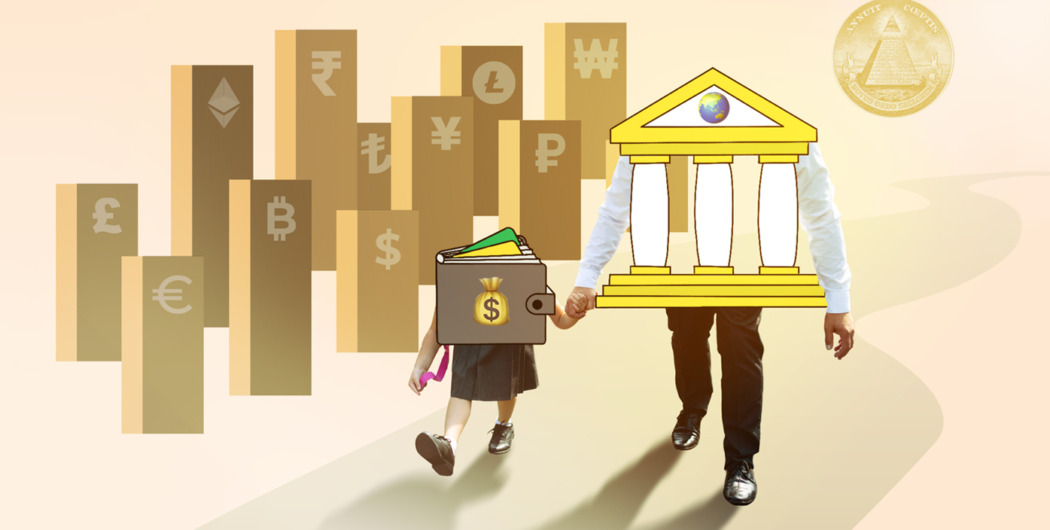

If money matters are on your mind in 2022, you are far from alone. Discover how global market trends can influence your financial habits by clicking here.
Given the high levels of debt around the globe, you would be forgiven for thinking that the world is filled with people who do not give their finances the attention they deserve. On the contrary, the current generations can be considered more financially savvy than any other. The harsh reality is that we just live in some truly screwed-up times, which is why money worries are the most common cause of money worries for people around the globe.
While those money worries are certainly justified, the good news is that global market trends can provide the necessary guidance to develop a winning strategy for personal money management.
If you’ve just dropped $44bn on the bird app that everyone else has downloaded for free, the following advice probably isn’t for you. For everyone else, though, here’s how the global trends affect personal money management strategies.
Global debt trap causing people to take note
While a growing percentage of the population is taking an interest in financial management and global trends, it’s out of necessity for millions. And in the least shocking twist since Prince Hans was the bad guy in Frozen (no prizes for guessing what movie my kids are still watching to this day), it can be attributed to government borrowing.
Global debt has now hit $226 trillion and counting while 25 countries have posted national debts that surpass 300% of national GDP. With memories of financial crashes fresh in the minds of people across the planet, it is impossible not to feel some concern about potential financial instability.
Fears regarding the safety of money held in bank accounts, a growing number of people are turning to globalized ideas like cryptocurrencies and blockchain tech. The decentralized assets offer an added layer of protection while the impenetrable technologies are highly desired due to the rise of cybercrime.
Furthermore, the volatile situations facing business sectors following the pandemic have resulted in many people taking proactive steps to create several revenue streams. From starting side hustles to joining freelance platforms or affiliate marketing schemes, fewer people are now prepared to rely solely on their primary salary. The pandemic pushed global unemployment over 200 million, with countries in Latin America, Europe, and Asia feeling the impacts of a slow recovery. The option to create multiple revenue streams, particularly by tapping into a global gig economy, has naturally seen a major upturn in popularity.
Strategy suggestion:
Look for remote work opportunities in markets where employers pay higher salaries. You can also protect your finances by keeping a diverse portfolio of cash, cryptocurrencies, and tangible assets.
Fractional investments on the rise
Millennials are the most educated generation ever, and they are unequivocally aware of the need to invest as a way to protect themselves against growing living costs and the impact this will inevitably have on their future pensions.
Despite this, millions of young people are not investing, even in the most developed nations. The figure has fallen since the pandemic, though, and fractional investments have been the catalyst – although running out of prank videos to watch on YouTube during lockdown finally allowed users to do something more productive with their screen time too.
Fractional investments are, quite simply, when you invest in less than full share of a company. It has been cited as one of the chief reasons behind the growing accessibility of investments, particularly for younger investors in both developed and developing nations. After all, finding $40k to buy a full Bitcoin is out of reach for the average investor. Fractional investments allow individuals to create a diverse portfolio, even when working with a limited budget. NFTs offer another increasingly popular choice, especially at the entry-level end of the scale, where people have far smaller levels of capital for investments. Investing has subsequently become a more prominent feature in long-term money management strategies.

Whether looking at crypto trading or traditional investments, online trading platforms have changed the landscape. For many, it has removed the need for brokers, while the ability to mimic the trades of successful investors has been a gamechanger too. Diverse portfolios and the ability to track investments in real time on smartphone devices additionally offer the opportunity to cash out if funds ever become tight – we’ve all been there.
Strategy suggestion:
Joining the investment arena can be quite daunting, but fractional odds, particularly when you use a demo account to familiarize yourself with the digital arena, offer a far smoother transition. When used in conjunction with the right savings accounts (be sure to compare the APRs offered by various banks), your finances can grow at a steady pace.

Tech tools are helping people cut their financial waste
You’d have to have been living under a rock to not know about rising fuel costs and other issues that have caused added stress. But if you think that means that employers are compensating their workers with appropriate salary increases, you are in for the biggest shock of 2022 – excluding the Oscars, obviously.
The harsh reality is that most people now find themselves worse off, even if they did receive a minor wage increase. While many people will suggest that modern tech devices are almost as bad for your hopes of securing a home as your morning coffee trip, technology can actually be the key to managing your finances. For starters, smart tech features and IoT can help reduce your monthly bills, while a range of online discount code finders enable you to save money on an extensive range of purchases. The savings are also automated.
Economic uncertainty, the growing availability of smartphones, and an increased understanding of financial matters have also led to a major spike in personal finance app downloads. Over 5.9 billion personal finance apps were downloaded in 2021, with the vast majority of adults having at least one tool to help manage their personal finances.
While there is a distinct contrast in the types of finance tools between boomers and Gen Z, for example, the global trend to embrace apps has undoubtedly encouraged greater financial organizational skills. The fact that it has penetrated all age groups makes it one of the most intriguing developments by far.
Strategy suggestion:
Even small savings make a big difference over time, but only you can take responsibility. Get into the habit of using automated discount finders and price comparisons on services. Aside from the direct savings, it can encourage you to review your food consumption and other sources of waste. Quitting expensive habits like smoking will aid the cause too. New habits will form within weeks.
Consumers turning to BNPL schemes
Managing credit has always been a hot topic for anyone looking to manage their personal finances. Digital interactions have made it easier than ever for people to secure their free annual credit reports or use the major credit score agencies to learn where things stand and (after a little cry) implement the steps needed to rebuild.
However, credit cards and store cards have often been very damaging tools for consumers. Falling behind on payments can quickly see debts spiral, and it isn’t easy to escape, especially when APRs are high. However, millions of people are now turning their attention to Buy Now, Pay Later schemes instead. They are offered by a wide number of merchants and often provide 0% interest rates when the balance is cleared in a set period, which is usually 3,4,6, or 12 months.
While they do pose the same potential risks as other forms of credit, many people find it easier to manage these payments, especially when using budgeting tools and personal finance apps. In just a few short years, BNPL has grown from a rarely used tool to one of the most common financial products available while its growing popularity has been seen in multiple countries across every continent. By avoiding interest rates, it can be a great tool for managing cash flow while simultaneously building credit scores.
Strategy suggestion:
While BNPL doesn’t put an end to the repayment requirements, it stops you from paying interest and compound interest. Using this type of product can help you prioritize clearing debts with high interest rates will subsequently help you save a lot of money. Another option is to keep the money in a savings account so that you can gain interest until the date that the payment is due.
Consumers now boast a greater financial education and access to more money management tools than ever before. Therefore, they can steer clear of the biggest dangers in favor of products that deliver better outcomes. As they see more and more people take note of those opportunities, it encourages them to follow suit. Despite the major challenges posed by current landscapes, financial success can be achieved wherever you are.









